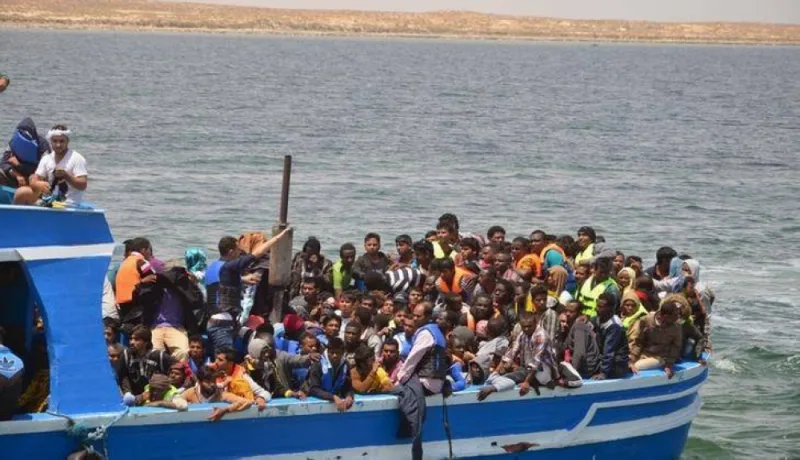Tunisian authorities announced that they had thwarted 17 irregular migration operations and rescued 587 migrants of sub-Saharan African nationalities and Tunisians who were about to cross the maritime border towards Europe.
The Tunisian National Guard said in a statement, that the naval units of the National Guard in the Sfax region were able to thwart 14 crossings of the maritime border, and rescue 544 passers-by, including 4 Tunisians.
The authorities were also able to arrest 10 wanted persons, including organizers and mediators, in addition to seizing two boats, two rubber boats, 13 marine engines, a light truck and a motorcycle used for transportation.
Marine units of the National Guard in El Haouaria in Nabeul Governorate in the north-east of the country were also able to thwart an operation to cross the maritime border, and rescue 30 Tunisian crossers, including 6 women and 7 children.
Marine Guard units in Monastir, east of the country, were able to thwart an attempt to cross the maritime border and arrest a group of illegal immigrants who were preparing to cross the maritime border surreptitiously.
For years, the Tunisian coast has witnessed a large flow of illegal immigrants wishing to reach the southern coasts of European Union countries. Illegal migration operations resulted in thousands of people drowning, according to statistics from the International Organization for Migration. Gulf Times






